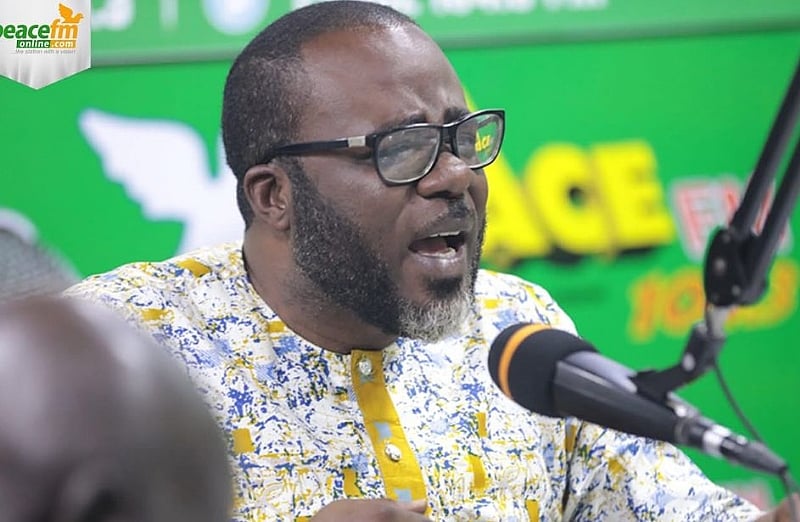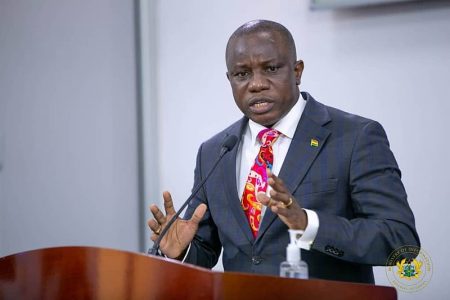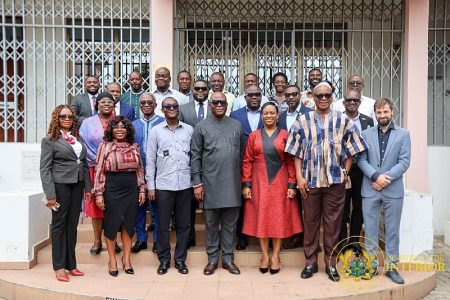The Electricity Company of Ghana (ECG) has found itself at the center of a major financial scandal following the release of the Auditor-General’s 2024 report. The report unearthed significant discrepancies in the company’s financial dealings, revealing billions of cedis in unremitted funds owed to power producers and a substantial underreporting of revenue collected. These revelations have sparked public outrage and calls for accountability from officials who served under the previous New Patriotic Party (NPP) administration. The scale of the alleged mismanagement raises serious questions about the financial oversight within the state power distributor and the potential implications for Ghana’s energy sector.
Alhaji Mohammed Nasiru, Deputy Chief Executive Officer of the National Identification Authority (NIA), has been particularly vocal in his condemnation of the alleged financial irregularities. He argues that the magnitude of the discrepancies necessitates a thorough investigation into the actions of all officials who held positions of authority within the NPP government during the period in question. Nasiru contends that every individual who served in the administration should be held accountable and answer for their role, whether direct or indirect, in the mismanagement of funds. He further demands a public apology from the NPP for the alleged financial misconduct exposed by the Auditor-General’s report.
The core of the financial scandal revolves around ECG’s handling of revenues and its obligations to various entities within the energy sector. The Auditor-General’s report highlights ECG’s failure to remit a staggering GH¢4.2 billion to State-Owned Enterprises (SOEs) and Independent Power Producers (IPPs) under the Cash Waterfall Mechanism (CWM). This mechanism is designed to ensure the equitable and transparent distribution of revenue within the energy sector. The failure to adhere to the CWM raises concerns about the potential disruption to power generation and the financial stability of the entities involved.
Further compounding the issue, the Auditor-General’s report also reveals that ECG significantly underreported its total revenue collection. While the company collected GH¢11.5 billion in 2023, it declared only GH¢8.6 billion to the Ministry of Energy and other stakeholders, resulting in a discrepancy of GH¢2.9 billion. This discrepancy raises questions about the transparency of ECG’s financial reporting practices and the potential for deliberate manipulation of figures. Of the declared GH¢8.6 billion, ECG disbursed GH¢7.3 billion through the CWM, leaving a further unaccounted balance of GH¢1.2 billion.
The Auditor-General’s report directly implicates the Managing Director of ECG, recommending that they be held accountable for the unremitted GH¢1.2 billion. This recommendation underscores the severity of the financial mismanagement and highlights the need for individual accountability within the organization. The report serves as a critical piece of evidence in the ongoing scrutiny of ECG’s operations and provides a basis for further investigations into the alleged misconduct.
These revelations have significant implications for Ghana’s energy sector and the broader economy. The unremitted funds and underreported revenue represent a substantial loss to the state and could negatively impact the financial health of the power producers. Such financial instability could potentially disrupt power generation and distribution, affecting businesses and households across the country. The calls for accountability and transparency aim to address these concerns and ensure the responsible management of public resources within the energy sector. The government’s response to these allegations and the subsequent actions taken will be crucial in restoring public trust and maintaining the stability of Ghana’s energy supply.














